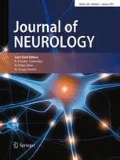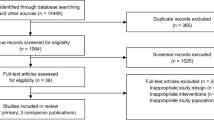Abstract
Objective
To investigate the efficacy of acupuncture on stroke recovery compared to an inert placebo.
Design
Placebo-controlled, randomised, clinical trial.
Setting
Post-stroke rehabilitation wards in five NHS hospitals in the UK.
Subjects
Patients between 4 and 10 days after their first stroke.
Interventions and outcome measures
The patients received 12 acupuncture or placebo treatments over four weeks. Acupuncture with electrical stimulation was compared with mock TENS, and assessments continued for 12 months after entry. Primary outcome was the Barthel Index (BI). Secondary outcomes were muscle power, Motricity Index (MI), mood, Nottingham Health Profile (NHP) and treatment credibility.
Results
92 patients completed data sets. Data were analysed using both t tests and a structural equation based on longitudinal analysis of both BI and MI, using generalised estimating equations with an exchangeable correlation structure. While both acupuncture and placebo (mock TENS) appeared to have had an equal effect on stroke recovery, there is no significant difference between the two interventions at 12 (p = 0.737, 95 % CI –2.00 to 2.81) and 52 weeks (p = 0.371, 95 % CI –3.48 to1.32). An apparently accelerated improvement in the MI scores in the acupuncture group at 3 weeks (p = 0.009, 95 % CI 1.55 to 10.77) is interesting.
Conclusions
Acupuncture did not demonstrate specific efficacy over placebo and both groups did as well as normally expected with this condition.
Similar content being viewed by others
References
Al-Khawaja IWDTTF (1997) The Barthel Index and its relationship to nursing dependency in rehabilitation. Clin Rehabil 11:335–337
Beijing College of Traditional Chinese Medicine (1980) Essentials of Chinese Acupuncture. 1 ed. Beijing: Foreign Languages Press
Bircan C, Senocak O, Peker O, Kaya A, Tamci SA, Gulbahar S, et al. (2002) Efficacy of two forms of electrical stimulation in increasing quadriceps strength: a randomised controlled trial. Clin Rehabil 16(2):194–199
Borkovec TD, Nau SD (1972) Credibility of analogue therapy rationales. J Behav Ther Exp Psychol 3:257–260
Cho ZH, Chung SC, Jones JP, Park JB, Park HJ, Lee HJ, et al. (1998) New findings of the correlation between acupoints and corresponding brain cortices using functional MRI. Proc Natl Acad Sci USA 95:2670–2673
Duan G, He J, Zeng Z, Tang Q, Sun S (1998) Comparison of effects of acupuncture on cerebral infarction in different parts. World Journal of Acupuncture-Moxibustion 8(2):3–7
Ebrahim S, Barer D, Nouri FM (1986) Use of the Nottingham Health Profile with patients after stroke. Journal of Epidemiology and Health Care 40:166–169
Gosman-Hedstrom G, Claesson L, Klingenstierna U, Carlsson J, Olausson B, Frizell M, et al. (1998) Effects of acupuncture treatment on daily life activities and quality of life. Stroke 29:2100–2108
HMSO (1998) Mortality statistics: causes. England and Wales 1997. 24 ed. London: Office of National Statistics
Hopwood V (2004) Possible acupuncture mechanisms. Acupuncture in Physiotherapy. Edinburgh: Butterworth Heinemann, pp 198–219
Hopwood V, Lewith G (2005) Does acupuncture help stroke patients become more independent? Journal of Alternative and Complementary Medicine 11(1):175–177
Hopwood V, Lewith G (1997) The effect of acupuncture on the motor recovery of the upper limb after stroke. Physiotherapy 83(12):614–619
Hu HH, Chung C, Liu TJ, Chen RC, Chou P, Huang WS, et al. (1993) A randomised controlled trial on the treatment for acute partial ischaemic stroke with acupuncture. Neuroepidemiology 12(2):106–113
Jiao S (1997) Scalp acupuncture and clinical cases. Beijing: Foreign Languages Press
Johansson B, Haker E, von Arbin M, Britton M, Langstrom G, Terent A, et al. (2001) Acupuncture and transcutaneous nerve stimulation in stroke rehabilitation. Stroke 32:707–713
Johansson K, Lindgren I, Widner H, Wiklund I, Johansson BB (1993) Can sensory stimulation improve the functional outcome in stroke patients? Neurology 43:2189–2192
Kaptchuk TJ, Stason WB, Davis RB, Legedza ART, Schnyer RN, Kerr CE, et al. (2006) Sham device v inert pill: randomised controlled trial of two placebo treatments. BMJ 332(7538):391–397
Lincoln NB, Jackson JM, Edmans JA, Walker MF, et al. (1990) The accuracy of prediction about progress of patients on a stroke unit. J Neurol Neurosurg Psychiatry 53:972–975
MacPherson H, White AR, Cummings M, Jobst KA, Rose K, Niemtzow RC (2002) Standards for reporting interventions in controlled trials of acupuncture: The STRICTA Recommendations. Acupuncture in Medicine 20(1):22–25
Malia K, Powell G, Torode S (1995) Coping and psychosocial function after brain injury. Brain Inj 9(6):607–618
Park J, White AR, James MA, Hemsley AG, Johnson P, Chambers J, et al. (2005) Acupuncture for subacute stroke rehabilitation. Arch Intern Med 165:2026–2031
Paterson C, Dieppe P (2005) Characteristic and incidental (placebo) effects in complex interventions such as acupuncture. BMJ 330(7501):1202–1205
Sallstrom S, Kjendahl A, Osten PE, Stanghelle JK, Borchgrevink CF (1995) Acupuncture therapy in stroke during the sub-acute phase. A randomised, controlled clinical trial. Complementary Therapies in Medicine 23:2884–2887
Si Q, Wu G, Cao X (1998) Effects of electro-acupuncture on acute cerebral infarction. Acupuncture & Electro-Therapeutics Res Int J 23:117–124
State Standard of the People’s Republic of China (1990) The Location of Acupoints. Beijing: Foreign Languages Press
Sulter G, Steen C, De Keyser J (1999) Use of the Barthel Index and Modified Rankin Scale in acute stroke trials. Stroke 30:1538–1541
Sze FK, Wong E, Kevin KH, Lau J, Woo J (2002) Does acupuncture improve motor recovery after stroke? A metaanalysis of randomised controlled trials. Stroke 33(11):2604–2619
Sze FK, Wong E, Yi X, Woo J (2002) Does acupuncture have additional value to standard poststroke motor rehabilitation? Stroke 33:186–194
Valli P, Boldrini L, Bianchedi D, Brizzi G, Miserocchi G (2002) Effect of low intensity electrical stimulation on quadriceps muscle voluntary maximal strength. J Sports Med Phys Fitness 42(4):425–430
Wade DT (1992) Measurement in Neurological Rehabilitation. Oxford: Oxford University Press
Wayne PM, Krebs DE, Macklin EA, Schnyer R, Kaptchuk TJ, Parker SW, et al. (2005) Acupuncture for upperextremity rehabilitation in chronic stroke: a randomised sham-controlled study. Archives of Physical Medicine and Rehabilitation 86(12):2248–2255
White P, Lewith G, Prescott P, Conway J (2004) Acupuncture versus placebo for the treatment of chronic mechanical neck pain: a randomized, controlled trial. Ann Intern Med 141(12):911–919
Wong AM, Su TY, Tang FT, Cheng PT, Liaw MY (1999) Clinical trial of electrical acupuncture on hemiplegic stroke patients. Am J Phys Med Rehabil 78(2):117–122
Wood R, Lewith G (1998) The credibility of placebo controls in acupuncture studies. Complementary Therapies in Medicine 6:79–82
Yu Y, Wang H, Wang Z (1995) The effect of acupuncture on spinal motor neuron excitability in stroke patients. Chin Med J (Taipei) 56:258–263
Zhang ZH, Liu M, Asplund K, Li L (2005) Acupuncture for acute stroke. The Cochrane Database of Systematic Reviews; Art.No. CD00317(2):1–22
Author information
Authors and Affiliations
Corresponding author
Rights and permissions
About this article
Cite this article
Hopwood, V., Lewith, G., Prescott, P. et al. Evaluating the efficacy of acupuncture in defined aspects of stroke recovery. J Neurol 255, 858–866 (2008). https://doi.org/10.1007/s00415-008-0790-1
Received:
Revised:
Accepted:
Published:
Issue Date:
DOI: https://doi.org/10.1007/s00415-008-0790-1




